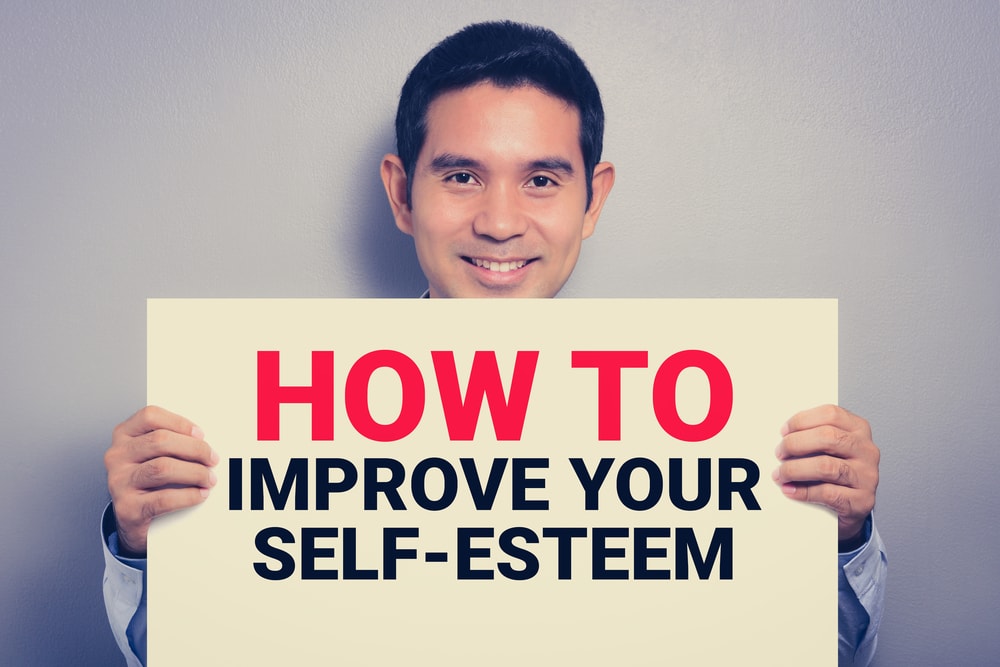Self-esteem is a term used when describing the opinion that we have in ourselves. It refers to how we think about the type of person we are as well as the abilities we have and the things we expect to happen in the future.
When we have healthy self-esteem, we are able to feel good about ourselves. Importantly, it also helps us to have a positive outlook on life. High self-esteem allows us to have the strength and courage we need in order to deal with the twist and turns and ups and downs of our life, find the positives and fight through the negatives and helps to protect our long-term health and well-being.
Do You Have Low Self-Esteem?
It is believed that having lower self-esteem has been rooted in our childhood days. Our relationships and history with those people surrounding us such as our siblings, parents and friends are the ones who shape the opinion we have of ourselves. We are able to receive a combination of negative and positive messages as we grow up but, as anyone with low self-esteem knows, it’s the negative ones that tend to stick in our mind. The feeling of not being good enough can be reinforced as we get older if it is not dealt with.
The way in which we develop our self-esteem in our adolescence can bring a great impact on the future level of our self-worth. The natural personalities that we have can also play a big part. Some of us possess personality traits that can make us more prone to those negative thoughts with regards to who we are and our sense of what we can achieve in life.
Low self-esteem affects us in a number of ways. If a certain person feels that they are not worthy enough, it will reflect on their behaviour. They act in a way that reinforces their own low self-esteem for example by being self-deprecating, telling themselves and others that they’re not good enough.
Even people who outwardly appear self-confident with high self-esteem may be struggling with these negative thoughts and behaviour patterns. They may find it hard to get up in the morning to face their day, perhaps thinking that they’re not up to the job they do or that they don’t deserve to be successful. They may also be very self-critical and analyse everything that they do in their working lives, endlessly running through what went wrong or finding faults, unfavourably comparing themselves to others, and focusing on the negatives rather than the positives.
All this leads to feelings of depression, hopelessness, boredom in life and lack of motivation. Fortunately, there are things practical steps that you can take to improve your confidence and self-esteem.
10 Tips To Help With The Challenges When You Build Your Self-Esteem And Confidence:
- Positive affirmations and self-talk challenge your negative thoughts and practice motivational affirmations,
- Regular and consistent exercise: helps to elevate your mood,
- Stop comparing yourself to other people: trust yourself, don’t measure yourself to other people successes and find out your greatest strengths,
- Give yourself a break when you make a mistake: remember we all make some mistakes,
- Change the things you can and forget the things you cannot: focus on the positives,
- Focus on the things you enjoy: find time do some fun stuff,
- Honour your achievements: be grateful of what you have succeeded at,
- Create a balance: between your work, home and personal life,
- Don’t be critical of yourself: give yourself a break,
- Get your family and friends to support you: especially on difficult days.
Easier said than done?
If those feelings of being ‘not good enough’ have become entrenched, perhaps because you’re suffering from long-term low self-esteem, the steps above may be very hard to implement. If you’ve been self-critical for many years, it’s hard to break this cycle by simply acknowledging that it’s not doing your self-esteem any good.
Therefore it can be helpful to get some additional support to help you break this cycle of negative thinking and change your behaviour. Counselling, such as talking therapies can be useful, as can cognitive behaviour therapies such as hypnosis.
Clinical Hypnosis for improvement of self-esteem is a safe and relaxing process that involves having a direct attention to the subconscious and conscious mind. Its main goal is to identify and challenge the patterns of negative thinking. Aside from that, it also encourages the change of negative to positive thinking with the power of suggestion. A cognitive behaviour hypnotherapist will present to you a number of visualisations, hypnotic suggestions and other related techniques. It also helps you in promoting positive attitudes, thoughts as well as beliefs that support you to have a healthy self-esteem.
When you are in the relaxed and deep state of hypnosis, the therapist will help you break the negative cycle of feeling and thinking, when you see these clearly you will change the habits and behaviour that follow. By identifying your goals, the session will be tailored to meet your needs and suggestions made under hypnosis will be able to promote healthy and long-term self-esteem.
If you would like to discuss the above in more detail, and in confidence, please do get in touch. You can email me on info@formindssake.com or call 0796 715 1790


Recent Comments